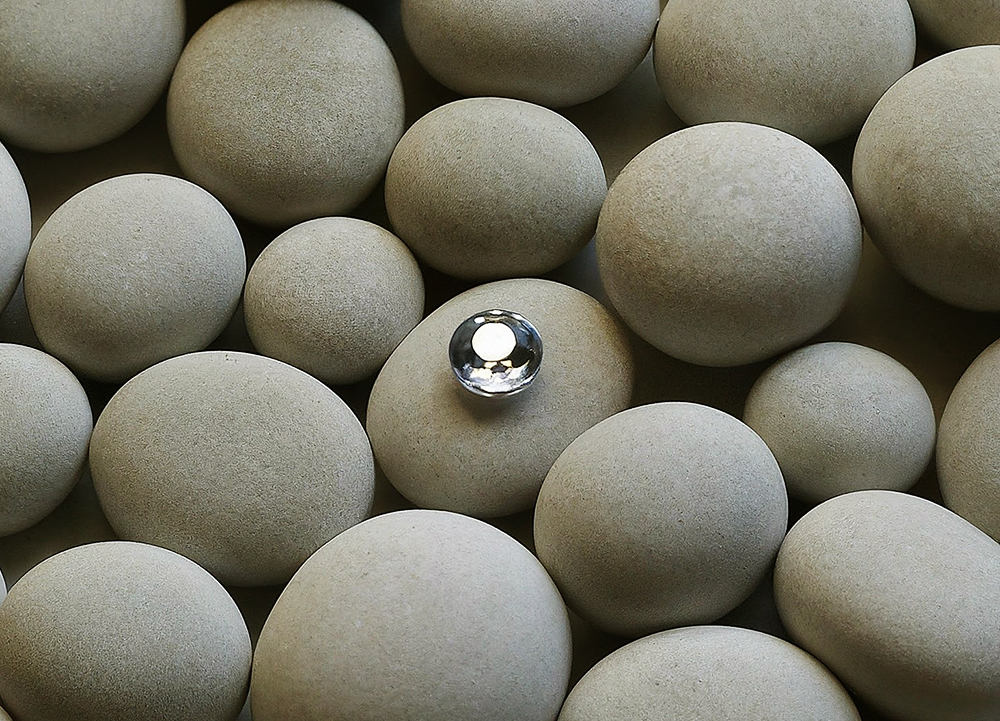Quality not Quantity
Blog
Discourse on the Inexhaustible Lamp continually reminds us that the amount of time we have been practicing means nothing; it is the quality of that practice which counts.
 ©
© shutterstock
I am lucky to be able to join the online sittings at my old Zen Centre in London and to hear Dharma talks, or sometimes, just short talks that give a little lift to the practice. Occasionally, these talks take a section from the Discourse on the Inexhaustible Lamp as a text. I am struck by how differently the speaker can illuminate a section I might have read many times. Something that might have seemed obscure or even mundane to me can be highlighted to bring some fresh meaning and understanding into the practice. I am reminded of how often I skim over details. I want to find the cherries and I switch off when there is too much cake in between.
If I only did this when I was reading the great Zen texts, it might not be so bad, but of course I don’t. I seem to treat my attention as a very precious thing that I am only willing to spend on the most valuable things. Except that is, of course, for all the time I spend vacantly scrolling through social media, watching vacuous TV programs (while vacantly scrolling through social media) and every other minor distraction that comes my way.
Our house is still undergoing a massive renovation project. While there has been considerable progress, building work is continuing on another floor in the house, ensuring that any appetite for noise or dust is more than sated. I sometimes blame this noise for my constant distraction, all the while knowing that no external noise can compete with the steady stream of distractions parading through my mind at any given moment. The constant battle against the dust also shows me in excruciating clarity where I switch off from the task of cleaning a room. I will go around a room as conscientiously and carefully as I can, pushing the duster into every corner, wiping every surface, poking under any furniture I can’t move. Yet every time I turn around to admire my handiwork, I see large patches of untouched dust which my duster has missed as my mind switched off to wander to, I don’t know where.
As I am tempted to rebuke myself with “after all this time in the practice you still can’t keep your feet on the ground for 10 seconds”, I take a deep breath and let it go. All the way through the Discourse on the Inexhaustible Lamp, we are reminded that time in the practice means nothing; it is the quality of that practice which counts. Master Torei spares nothing in admonishing those who think that because they have been long time practitioners or even ordained monastics they have somehow gained wisdom or an understanding of the Way. “Look to the place where your own feet stand” is mentioned several times.
No amount of history will excuse you dealing with the present moment. I mentioned previously that my arrival in my new home coincided with an intense gloom. As it faded last year, I thought I had done my time in the hell realms. I searched for a cause for these feelings but in the end, I realised that while my mind could be endlessly creative in finding potential reasons to be sad, the only way to deal with it was to sit through the feelings, one sigh at a time. Soon this demon just seemed to get bored and left me alone. Even as I felt a lot better, I never quite lost the fear that he would return rattling the keys of his dungeon at me.
Sure enough, as the year came to an end, I started to feel anguished and sad. The demon had come back but this time it was different. He was more an unwelcome house guest rather than my jailor. I was able to stay with very uncomfortable feelings. I remember learning some time ago in the practice that a thought was just a thought, a memory was just a memory, that all mental confections, both happy and sad, were just transitory moments that could be experienced with some detachment and forbearance. Now I saw that all feelings, however deep and forceful, were just feelings that could be experienced with detachment and forbearance.
I started to see that my sense of suffering had isolated me. I saw how difficult I must have been to deal with. I also saw that when other people were being difficult, it was their suffering that made them behave in this way. I felt a glimmer, of what I suppose we call compassion, for people whom I had previously just regarded as difficult. We think that we are alone in our suffering but perhaps it is precisely that sense of suffering which unites us all.
We tend not to talk too much about compassion in the training. A forced or conscious effort to be compassionate can lead to all sorts of undesirable consequences. But slowly working away under the surface, the practice is guiding us to a real understanding of suffering, our’s and everybody else’s. They really are the same.
Looking for Solid Ground | Michael O'Neill
Blog










